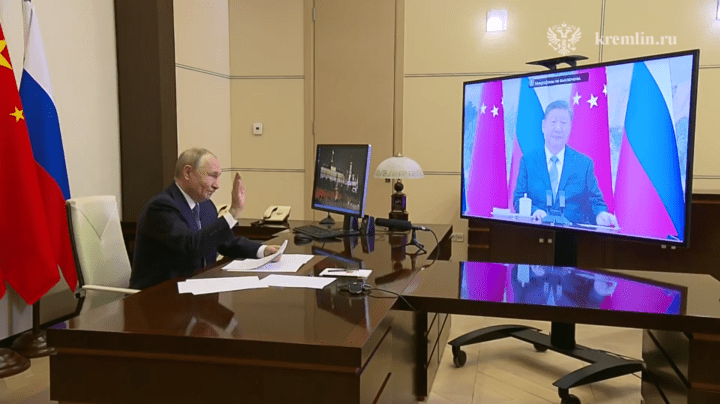- Category
- World
Why US Tactical Concessions Will Fail to Break the China-Russia Strategic Alliance

“Breaking the Beijing-Moscow alliance” is a clear goal behind the recent US-Russia thaw. But with China and Russia’s economies tightly intertwined, any tactical concessions to Russia are unlikely to weaken their bond without backfiring on U.S. interests.
Despite Russia’s long-standing chauvinism toward the Chinese people—fueled by state propaganda since the Soviet era and intensified by past military conflicts such as the battle over Damansky Island—Moscow reaffirmed its commitment to Beijing in 2023. During a three-day visit by China’s leader Xi Jinping, Russian officials once again declared that the union between the two nations was “sealed forever,” positioning it as a direct challenge to US global dominance.

Over the past three years, China has become the backbone of Russia’s economy, gaining significant opportunities for expansion within Russian territory. Their economic relationship is straightforward: Chinese goods in exchange for Russian resources. Trade between the two countries has surged by more than $100 billion in the past three years, reaching a record-breaking $244.8 billion in 2024.
While the word “Chinese” has been used in Russian since the 1990s as a synonym for cheap and low-quality products, Chinese goods now dominate the market—not just in everyday items like clothing and household products but also in high-end manufacturing, including automobiles.
Just over 100,000 Chinese cars were sold in Russia in 2022. That number had skyrocketed to nearly one million by 2024. The pride of Russia’s automotive industry—and a key player in the logistics of its military—KAMAZ, ended 2024 with losses for the first time, having been overtaken in domestic sales by the Chinese truck brand Sitrak.
The growing military cooperation between Russia and China has also drawn attention. China has become the leading supplier of equipment used by Russia in various weapon systems.
Although Beijing officially denies providing military aid to Moscow, Chinese companies, including state-owned enterprises, have been supplying Russia with dual-use goods, small arms, drones, navigation equipment, and protective gear, according to a US Department of Defense report. Media and analysts meanwhile suggest that Russia has started supplying China with previously restricted military technologies.
The United States no longer hides its desire to weaken the Russia-China alliance. “I don’t know if we’ll ever be successful completely at peeling them off of a relationship with the Chinese,” US Secretary of State Marco Rubio told Breitbart News. “I also don’t think having China and Russia at each other’s neck is good for global stability because they’re both nuclear powers.”
One potential avenue for influencing Russia could be Arctic cooperation and large-scale commercial agreements involving US companies working with Russian resources. However, the “Arctic project,” which envisions new trade routes and resource extraction, is clearly a long-term strategy rather than an immediate solution.
Moreover, such trade routes primarily benefit China, and any exclusion of Beijing from these agreements would be poorly received. Today, China holds numerous levers of influence over Russia.
From a technological standpoint, Russia has little to offer the United States. Whether American companies would even consider returning to the Russian market remains an open question. In fact, until recently, there was no official ban on US companies operating in certain sectors in Russia, yet their presence yielded little financial benefit.
Given the nature of the Russia-China relationship, the only way to weaken their ties is to offer them what they currently provide to each other. For Russia, this means money and goods, which it can only reciprocate with raw materials.
However, such a move would weaken US energy companies, which have been increasing fuel exports to Europe, and is unlikely to benefit the American economy.
China, on the other hand, is interested in new markets, cheap resources, and greater access to military technology. But it is already clear that US policy is focused on reshoring manufacturing and increasing domestic investment—an entirely logical approach. As for military technology, that is simply not up for discussion for obvious reasons.
Under these circumstances, striking win-win deals with Russia that would weaken China will be extremely difficult. At the same time, a drastic shift in approach toward Russia—an ally of Iran and North Korea—could legitimize further violence and wars, which are clearly not in the interests of the democratic world.
-206008aed5f329e86c52788e3e423f23.jpg)

-605be766de04ba3d21b67fb76a76786a.jpg)
-2c683d1619a06f3b17d6ca7dd11ad5a1.jpg)


-661026077d315e894438b00c805411f4.jpg)
-46f6afa2f66d31ff3df8ea1a8f5524ec.jpg)